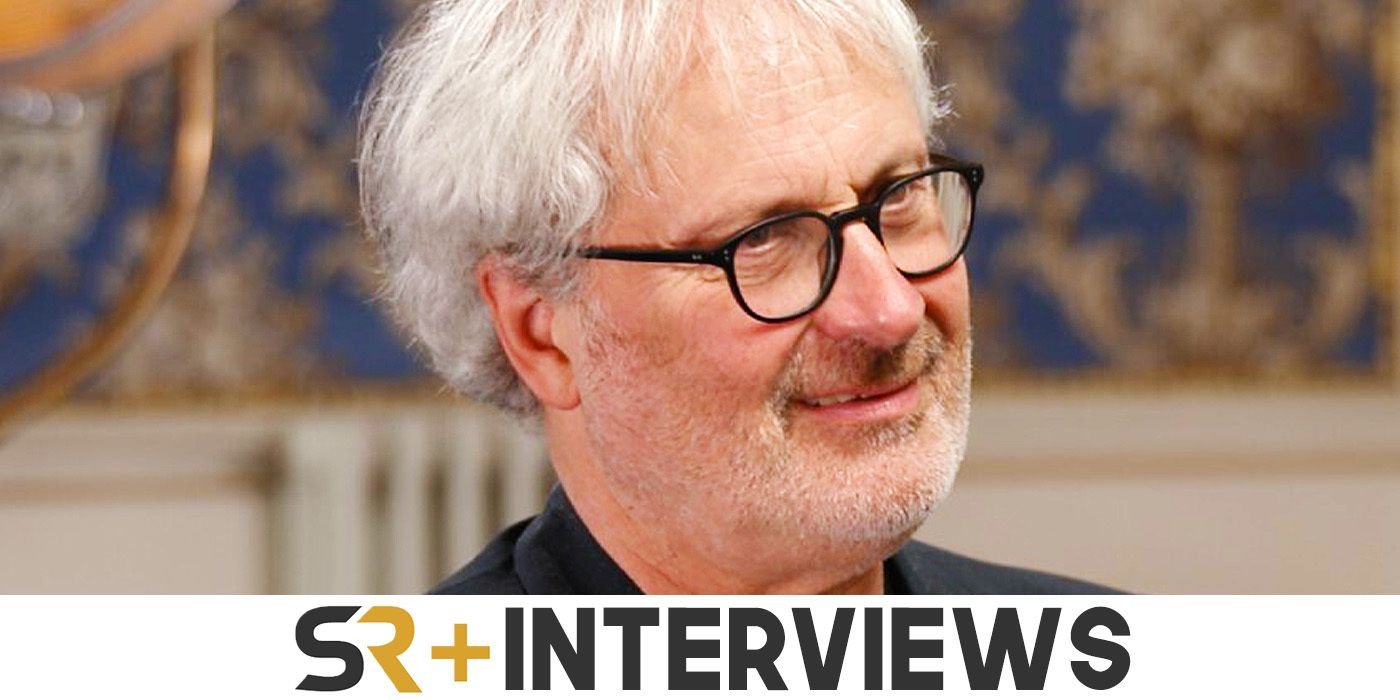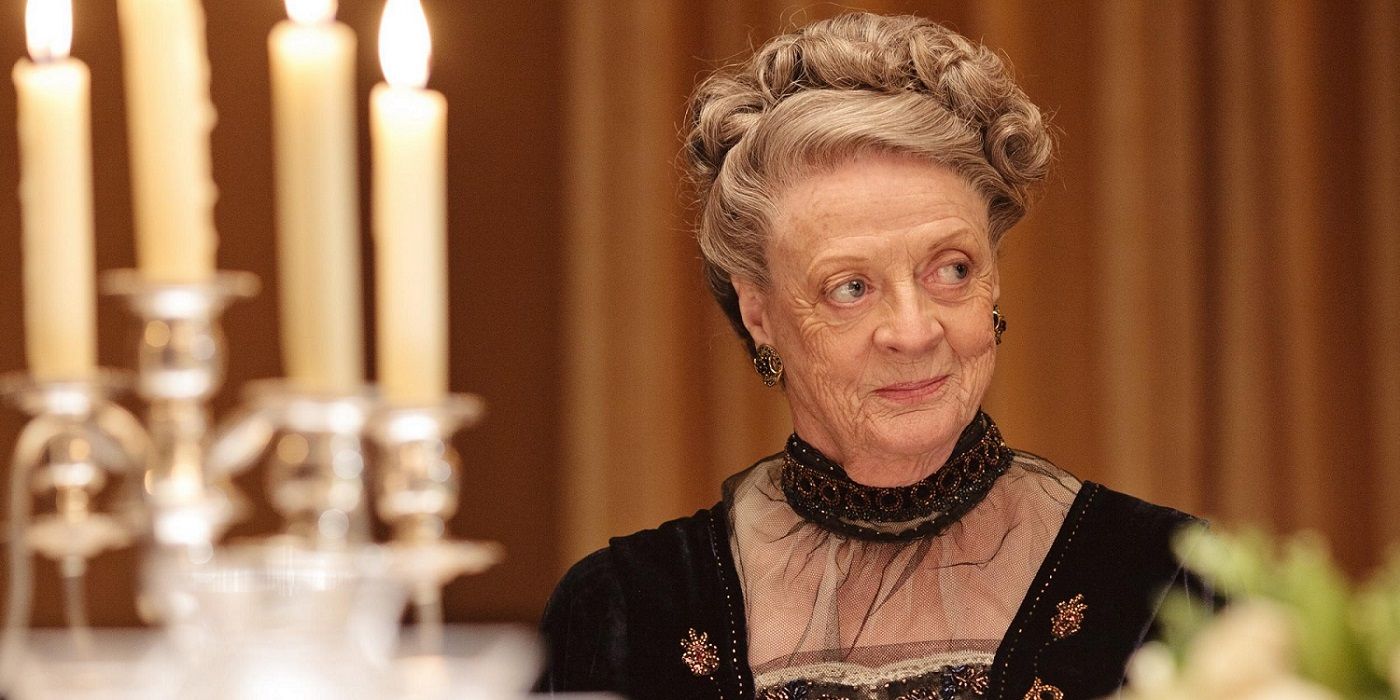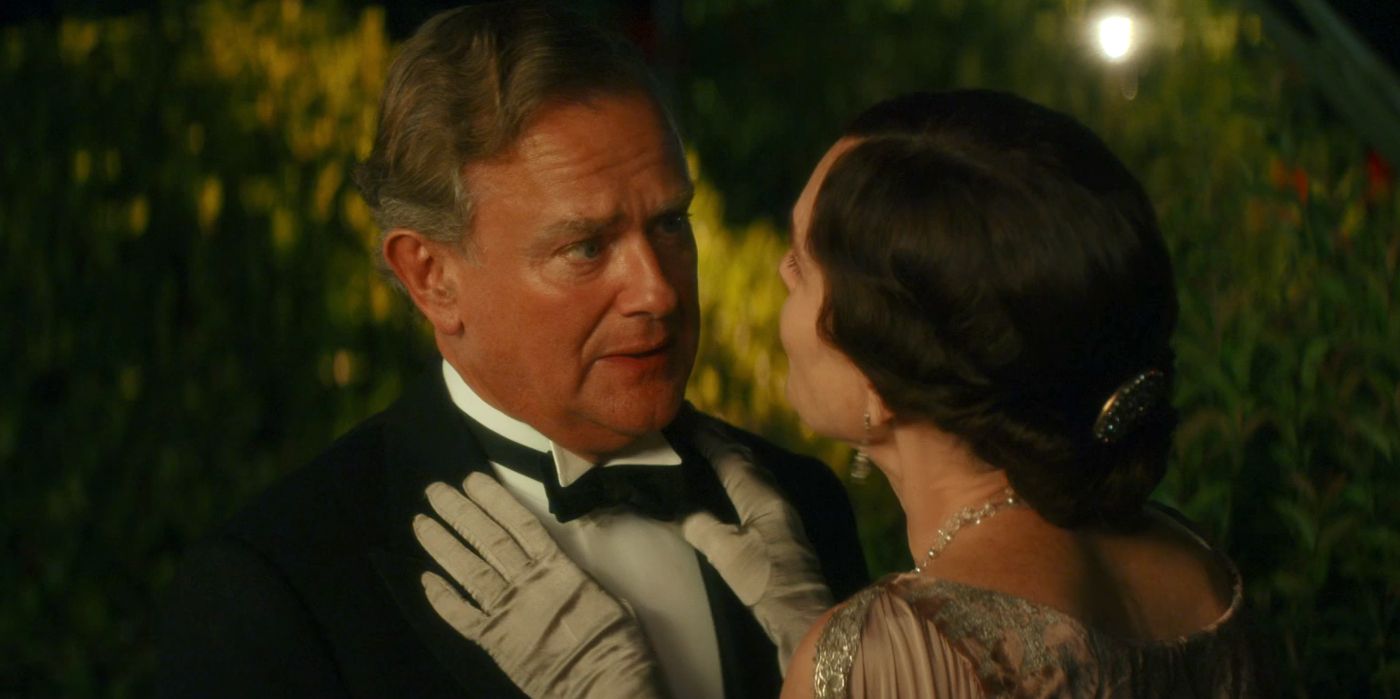Warning: This interview contains spoilers for Downton Abbey: A New Era
Stepping into Downton Abbey: A New Era after the cast had five seasons and a move together, must have been daunting, but director Simon Curtis did it with aplomb. The accomplished story-teller, who previously directed My Week with Marilyn, saw the challenges of working with Downton Abbey: A New Era's beloved cast as a great opportunity. In his hands, A New Era does things - especially with Hugh Bonneville's Lord Grantham - that Downton Abbey had never taken on before.
Before he came to Downton Abbey: A New Era - joining his wife Elizabeth McGovern, who plays Lady Cora Crawley, of course - Curtis was behind Cranford, the Victorian-era show that was a significant influence on Downton Abbey. In fact, were it not for Dame Judy Dench playing Matilda "Matty" Jenkyns, it's less likely that Maggie Smith would ever have played Lady Violet. That's how important Curtis' previous work was to this universe. And with A New Era, he gets to come full circle.
Ahead of Downton Abbey: A New Era's release on DVD and Blu-ray on July 5, Screen Rant spoke to director Simon Curtis on the show that paved the way for Downton Abbey, the daunting rulebook, and what he would like to see in Downton Abbey 3...
Screen Rant: What are the specific challenges you face as somebody coming into a story that already has six seasons and a movie behind it?
Simon Curtis: I think making it fresh, but I was greatly helped. Because the script was so rich and diverse. And the new storylines [like] taking the Crawley family to the south of France, and the film-within-a-film, offered new energy and new visions that helped.
Coming into the fold, did you have any ideas specifically for the characters and what sort of stories you'd like to tell?
Simon Curtis: This began with me reading the script, which I really liked. So, my energy was focused on making the script as good as possible.
Having spent so long in their roles, that actors have strong ideas of who they are as characters; what they would do wouldn't do. Is that a challenge as well?
Simon Curtis: I would say the opposite. It's a luxury, because often as a director, you're trying to marry an actor to a part with no rehearsal at all. And in this case, these actors had these characters so deep in their DNA; they merged character and actor into one very rich thing. And that was exciting to work with, actually,
On top of that, there must also be a rulebook as thick as my arm. Not just the story things and the characters, but the historical accuracy.
Simon Curtis: Yes. That's something I'm less interested in other people, but again, the storylines in this film - the new energy of a film crew turning up who don't care about whether it's the right fork or the right wineglass, and going to France, where everything is done differently - were very liberating.
What would you say you're most proud of, in terms of putting your stamp on A New Era?
Simon Curtis: I hope that it's as emotional as the story could possibly be, and as funny as the story could possibly be.
It is funny. My three favorite moments in the film are either based around humor, so the hat shop and when the stuff become the extras, which I'm sure you've discussed at length. And when Cora breaks the news to Robert about her illness. It's the most personal scene we've seen for Robert in the entire series. I'm just interested in the insight into how that scene came together.
Simon Curtis: I love that comment on those three scenes, as I'm very proud of them all. That scene with Robert... To be honest, we didn't discuss it much, Hugh and I. When we first rehearsed it, he wanted that burst of emotion to come out, and I thought he played it brilliantly. I've been thrilled by how people have reacted to that. I think partly, it's because exactly as you say, you hadn't seen Robert like that in over a decade. It's like seeing your uncle or your brother that you know very well behaving in an unexpected way. I thought Hugh and Elizabeth played that scene brilliantly.
Yeah, it's a real standout. It was like a reward, because we've been with them for so long.
Simon Curtis: I mean, that's the thing. People haven't really compared this film to Boyhood, but I do. Because you've seen those characters over a 12-year period, and it's unique. I don't know, you probably know more about film history than me. But are there any other examples of the same group of actors playing the same characters over 12 years? Harry Potter?
Not really. There isn't as much growth, because Harry Potter is based around one continuous trauma. This is different eras altogether.
Simon Curtis: Yeah, exactly. Going back to your other question: as a director, it's like you hit the jackpot when you've got those storylines and those characters.
I'm sure you've been asked before, but would you like to come back and tell more stories in this world?
Simon Curtis: Well, I say the same thing. I don't know if there is going to be more films. But I'd obviously be happy to read any script, because I'm very driven by that.
It's more of a fantasy question, but if you could jump anywhere on the timeline beyond where we already are in Downton at the end of this movie, where would you be most interested in telling a story?
Simon Curtis: Well, I'd like to see [if] maybe Robert takes Cora back to America.
My final question is not about Downton, but about Cranford. I was a major fan, and I used to watch it with my mother. I always lament the fact that we haven't seen any more from that. Has there ever been a conversation to go back for another?
Simon Curtis: It's funny, because on this set, there was one day we were filming. In fact, the day we were filming on the boat; the royal yacht. My AD, who'd worked on Cranford, showed me her phone and Facebook had sent her 10 years ago today. We were doing a scene from Cranford with Jim Carter and Imelda [Staunton], who were also in this. So, that was a happy memory.
I think now there would have been more Cranford, in the appetite people have of creating things. But again, it's getting that ensemble together and so on. But I'm glad you referenced that, because I think in some ways, Cranford paved the way for Downton in television history. I'm very proud of my involvement in that.
Downton Abbey: A New Era Synopsis
The much-anticipated cinematic return of Downton Abbey follows the Crawleys and their staff as they welcome a movie crew and their glamorous stars to Downton for the filming of a new silent movie, while other members of the family go on a grand adventure to a villa in the south of France to uncover a mystery about the Dowager Countess and her past.
Check out our other Downton Abbey: A New Era interviews with stars Hugh Bonneville, Laura Carmichael & Allan Leech, Jim Carter & Raquel Cassidy, and Elizabeth McGovern.
Downton Abbey: A New Era is on Digital now and hits Blu-ray and DVD on July 5.



